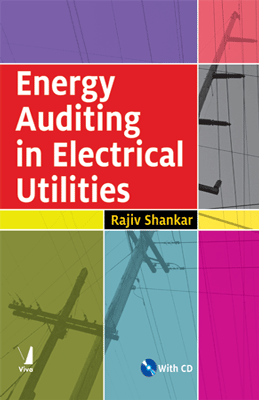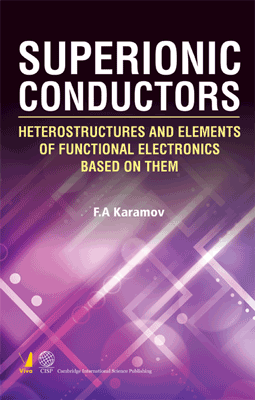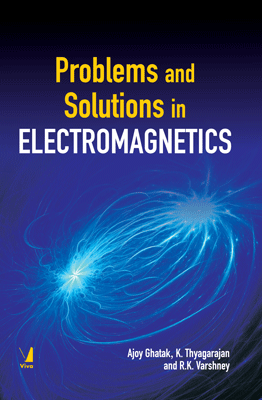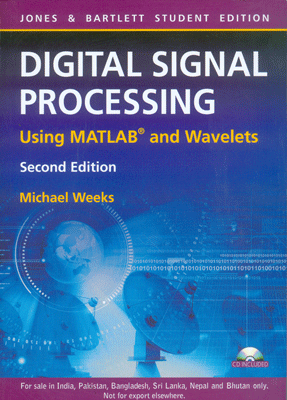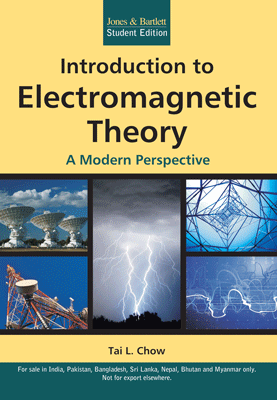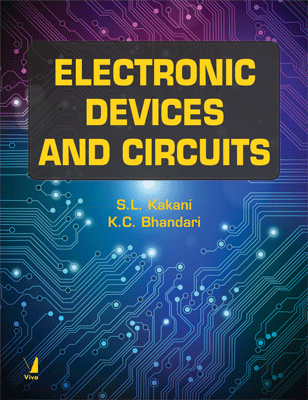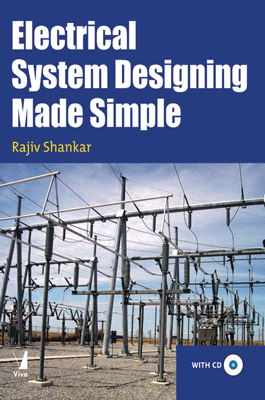Energy Auditing in Electrical Utilities (with CD)
Energy Auditing in Electrical Utilities (with CD)
₹985.50 ₹1,095.00 Save: ₹109.50 (10%)
Go to cartISBN: 9788130914695
Bind: Hardbound
Year: 2020
Pages: 204
Size: 178 x 292 mm
Publisher: Viva Books Originals
Sales Territory: Worldwide
Description:
An authentic and detailed handbook on the subject, Energy Auditing in Electrical Utilities discusses: various aspects of the induction motor; the working principle of a transformer; construction details and specifications of cables; advantages of providing capacitor banks in electrical network; various energy-saving options in compressed air system; centrifugal pumps.
Energy is required to run every business, whether industrial or commercial, and most of it is obtained form scarce fossil fuel. Energy auditing helps to identify and minimize energy wastage. The technical subject of energy auditing involves many engineering branches like electrical, mechanical and chemical engineering. The energy auditor must have thorough knowledge about the mechanical equipments, as well as be good at finance, project management and decision-making. This book comes handy for all these.
Main topics include:
- General aspects of energy auditing
- Squirrel cage induction motor
- Transformer
- HT and LT cables
- Lighting
- Capacitor bank
- Compressed air system
- Pumps
- Air conditioning system
- Software CD
The software supplied with this book can perform all calculations in energy auditing. Various energy-saving options can be analysed using this menu-driven and user-friendly software. It can generate results of energy-saving analysis in report form, which can be printed and attached with the energy audit report.
This book will be useful to energy auditors, plant engineers, contractor, students, and all those who are concerned with performance monitoring and improvement of plant equipments.
Target Audience:
Energy auditors, plant engineers, contractors, students and those concerned with the performance monitoring and improvement of plant equipments.
Contents:
General Aspects of Energy Auditing • Introduction • Benefits from Energy Audit • Requirement to Conduct Energy Audit • Methodology for Energy Audit • Preparation of Tender Enquiry Document • Scope of Work Clause • Time Frame Clause • Secrecy Clause • Methodology Clause • Commercial Terms and Conditions Clause • Energy Audit Report • Executive Summary • General Aspects of Energy Auditing • Energy Tracking System • Utilities Infrastructure • Assessment and Recommendation • Conclusion • Software • Squirrel Cage Induction Motor • Introduction • Construction of Squirrel Cage Induction Motor • Special Design Feature for High Efficiency Motor • Operation of Induction Motor • Torque-Speed Characteristics • Types of Load • Operating Parameters of Motor • Motor Power Factor • Motor Efficiency • Losses • Core Losses • Windage and Friction Losses • Copper Losses in Stator and Rotor • Stray Load Losses • Measurement of Efficiency • Standards • Measurement of Resistance • Slip Measurement • Loading of Motor • No Load Test • Determination of Energy Saving • Determination of Load • Assessment of Economic Feasibility • Choice of Energy Efficient Motor • Energy Saving Options in Oversized Motor • Affect of Variation of Voltage on Performance of Motor • Over-voltage • Under-voltage • Effect on Efficiency Due to Variation in Load • Power Factor • Unbalance Phase Voltage • Insulation System • Service Factor • Motor Improvement Programme • Energy Conservation Building Code (ECBC) • Conclusion • Software • Transformer • Introduction • Basic Principle of Working of a Transformer • Transformer Losses • Fixed Losses • Load Losses • Evaluation of Transformer Losses • Reduction in Transformer Losses • Energy Conservation Building Code • Conclusion • Software • HT and LT Cables • Introduction • Selection of Cable • Construction • Insulation • Inner Sheath • Armouring • Outer Sheath • Specification • Tests • Installation • Economics in Selection of Cable • Conclusion • Software • Lighting • Introduction • Terms and Definition • Lumen • Lux • Load Efficacy • Lamp Circuit Efficacy • Colour Rendering Index (CRI) • Characteristic of Different Types of Lamps • Aspects of Lighting System Designing • Installed Load Efficacy Ratio • Various Means for Energy Saving • Use of Natural Daylight • Reduction in Light Fixture • High Efficiency Lamps and Luminaries • Effect of Reduction in Supply Voltage on Energy Consumption • Electronic Ballast and Low Loss Electromagnetic Choke • Timers and Occupancy Sensors • Fluorescent Tube Light • CFL Lamps • Energy Efficiency Building Code • Lighting Control • Exterior Lighting Control • Conclusion • Software • Capacitor Bank • Introduction • Reactive Power • Power Factor • Remedy of Poor Power Factor • Location of Capacitor Bank • Economics of Power Factor Improvement • Energy Conservation Building Code • Metering and Monitoring • Thermal Monitoring of Main Distribution System • Power Distribution System Losses • Conclusion • Software • Compressed Air System • Introduction • Types of Air Compressor • Reciprocating Compressor • Rotary Compressor • Centrifugal Compressor • Compressor Assessment • Capacity Assessment • Compressor Efficiency • Isothermal Efficiency • Volumetric Efficiency • Specific Power Consumption • Leak Test • Quantification of Leakage • Steps of Energy Conservation in Compressed Air System • Conclusion • Software • Pumps • Introduction • Centrifugal Pumps • Characteristic Curves of a Centrifugal Pump • Pump Performance Calculations • Pump Hydraulic Power • Pump Shaft Power • Electrical Input Power • System Curve • Pump Characteristic • Sizing of Pump • Energy Saving in Pumping System • Speed Variation of Pump • Change in Impeller Diameter of Pump • Parallel Pumping • Conclusion • Software • Air Conditioning System • Introduction • Energy Efficiency in Air Conditioning System • Specific Power Required • Coefficient of Performance • Conclusion • Software • Installation of software.
About the Author:
Rajiv Shankar has a B.E. from Malaviya National Institute of Technology (formerly Malaviya Regional Engineering College), Jaipur, and an M.Tech. from Indian Institute of Technology, Delhi. He is a senior member of IEEE and has 23 years' experience in installation, testing, commissioning and maintenance of electrical systems. He is now Chief Manager (Electrical), Krishak Bharati Cooperative Limited, Surat. Ravi Shankar is a Bureau-of-Energy Efficiency- certified Energy Auditor.
